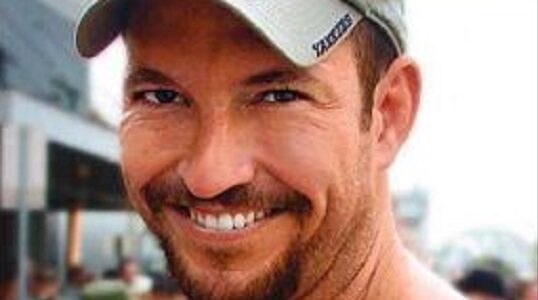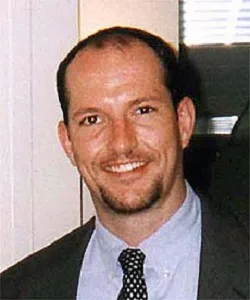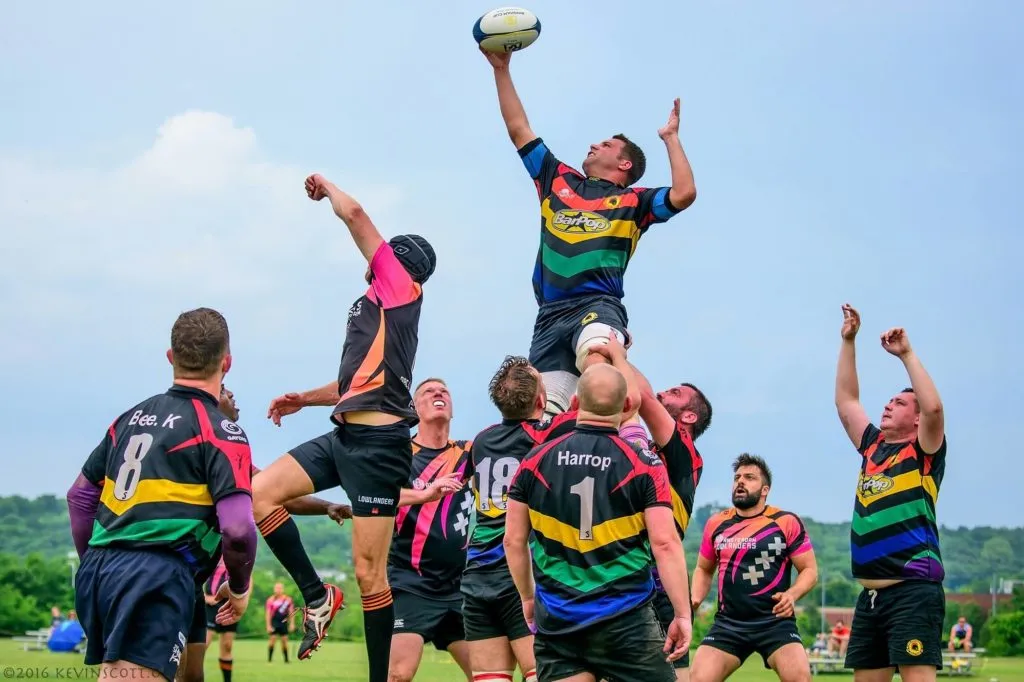Remembering Mark Bingham, the fearless gay hero who helped take Flight 93 back from hijackers on 9/11

On the 19th anniversary of 9/11, we remember Mark Bingham, one of the fallen heroes of the tragedy that inflicted the US on 11 September, 2001.
Mark Bingham was tall. He towered at 6’4″ which, with his broad physique and booming personality, made him hard to miss and quite hard to forget.
He could easily have played any sport – rugby was his personal favourite – and friends and family knew him for always having a video camera to hand, being an aspiring filmmaker.
The openly gay rugby player once fought off an armed mugger to protect his partner of six years, Paul Holm. “He hated to lose at anything,” Holm once recounted.
So, when television screens flashed with the news that passengers on United Airlines Flight 93 battled their hijackers on 11 September, nobody who knew Bingham was surprised to learn he was involved.
What happened?
Bingham was among the passengers who, along with Todd Beamer, Tom Burnett and Jeremy Glick, hatched the plan to retake the plane from the hijackers.
A plan that ultimately saved countless lives.
Hijackers intended for the plane to hurtle into a Washington DC landmark. Instead, the plane crashed in a grassy, empty field near Shanksville, Pennsylvania.
Around 30 minutes after hijackers commandeered the plane, the group rushed the cockpit. The plane was 20 minutes of flying time away from its suspected target, thought to be the White House or the US Capitol Building.
While risking their own lives, Bingham and the passengers successfully overthrew the hijackers.

Mark Bingham, a popular sportsman, came out as gay after graduating from the University of California, Berkley, aged 21.
The 31-year-old was the last to board the flight. In fact, he nearly missed it after he overslept that morning.
Bingham was returning to San Francisco for a fraternity friend’s wedding. He arrived at the Terminal A at 7.40am, ran to Gate 17 and took to his seat in 4D, according to flight records.
Sat in the first class patch of the plane, the hijackers were right in front of the public relations officer when shouting their demands.
All 44 people lost their lives aboard Flight 93, but their actions likely saved hundreds more – and Bingham is remembered as one of the many heroes of 9/11.
As outlets covered his heroic act, questions of whether his sexual identity is relevant to reports were raised. Was he a ‘gay hero’ or a ‘hero who was gay’?
Just two days after the 9/11 attacks, two reverends on CBN asserted that God, angered by homosexuality and abortion, had allowed the attacks to happen.
‘Hi, Mom, this is Mark Bingham.’
At 6.44am, the mobile phone of Alice Hoagland buzzed. She was staying at her bother Vaughan’s house.
Picking up her cell, she heard a familiar formal voice – her son’s.
“Hi, Mom. This is Mark Bingham,” her son said. Then only: “I love you,” and he hung up.
The former United Airlines flight attendant would never hear her son’s voice again. But she tirelessly ensured people would know his name.
Hoagland, who raised Bingham as a single mother, became an ally for LGBT+ rights as well as an advocate for increased airline safety and security.

Rugby players at the Bingham Cup. (Bingham Cup)
While the Bingham Cup, a biennial international rugby union competition predominantly for queer men, was established in 2002 in his memory.
“I’m proud of Mark and everyone involved in the Bingham Cup,” Hoagland told radio station 702 ABC Sydney.
“I lost my son, but gained 60 teams of rugby players,” she said.
“The legacy Bingham carved out is not forgotten,” chair of International Gay Rugby (IGR) Ben Owen once said in reverence of Bingham to PinkNews.
“Mark was instrumental in sparking what has become the international gay and inclusive rugby movement today as a member of and founder of some of the first ever clubs.
“His strength of character, love of the game of rugby and heroic spirit lives on throughout IGR and our member clubs around the world and we look forward to continuing his legacy next August at the Bingham Cup Ottawa 2020.”
Bingham’s partner Holm remembers him as brave and how they fell in love over a bowl of shrimp.
With a big grin, Bingham approached Holm at a Christmas Party in 1993.
“Hi, I’m Mark Bingham. Who are you?” he said, recounted Holm.

